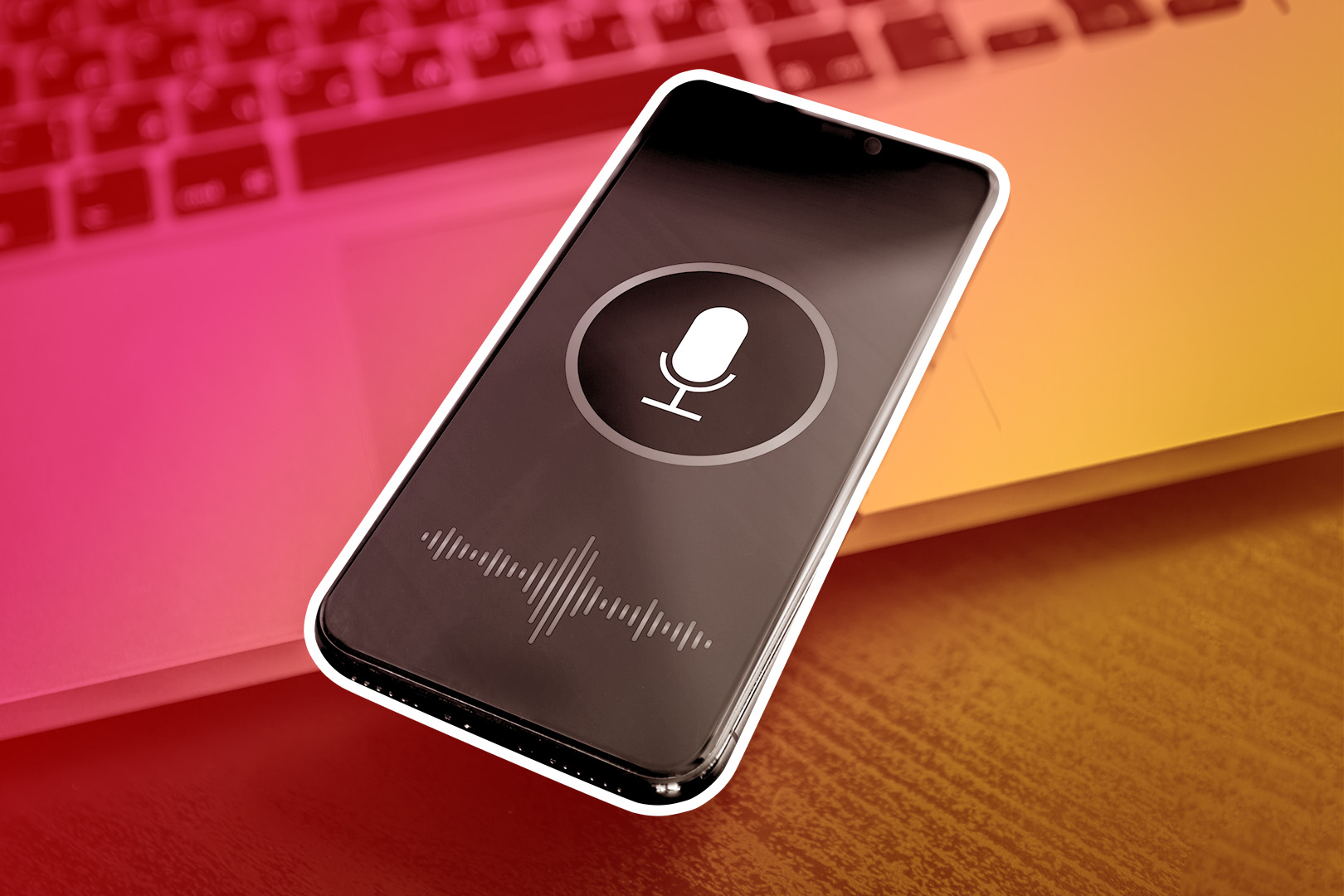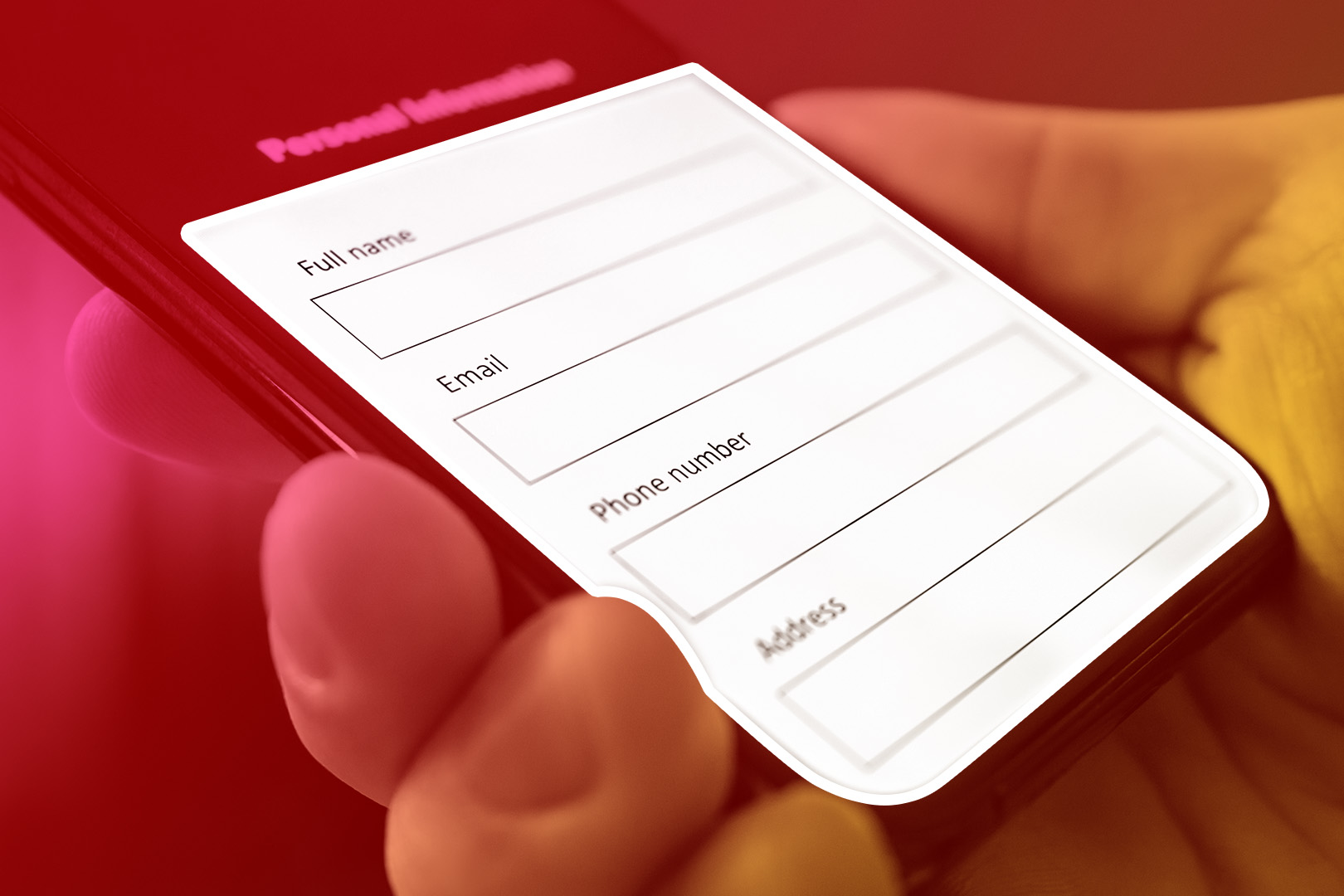Please, step into my time machine…
The year is now 1981. You drive to work in your slightly used Oldsmobile Cutlass, Journey's Don't Stop Believin' blasting through the car speakers. You sing along.
When you get to the office, you nod to the other salespeople in your department, before sitting down at your desk. It's covered with the tools of your trade: a telephone, a calculator, a pen.
You pick up the phone and dial the first number on your call sheet. "Hello, Mr. Jones, my name is…" You scribble as many notes as you can with your ballpoint pen. You call another lead immediately after the first, and the sales process starts over.
Eventually you'll transfer the notes you've taken to a spreadsheet—by hand—while mumbling "just a small town boy, born and raised in south Detroit…" under your breath. Ah, the '80s.
What was the point of this little walk down memory lane? To remind you how much sales has changed. Especially when it comes to the technology that sales reps use to close deals.
These days, you have access to incredible tools that the sellers of yesteryear could only dream of. One of the most important of these tools is sales CRM software.
Not sure what a sales CRM is? Not to worry. Let’s dive into what a sales CRM is, and how you can choose the right one for your business.
if (window.convertflow == undefined) {
var script = document.createElement('script');
script.async = true;
script.src = "https://js.convertflow.co/production/websites/10698.js";
document.body.appendChild(script);
};
#cta_85610 .cf-form-2.cf-form-theme-default.cf-form-vertical.cf-field-regular button {
height: 40px !important;
}
#cta_85610 .cf-background-size-cover {
background-size: cover !important;
border-radius: 6px !important;
}
#cta_85610 {
margin: 3rem 0rem 3rem 0rem !important;
}
.post__content p:first-of-type {
margin-bottom: 0rem !important;
}
#cta_85610 .cf-form-2.cf-form-theme-default .cf-consent-label {
color: #fff;
margin-bottom: 1rem;
}
#cta_85610 .cf-form-2.cf-form-theme-default .cf-consent-label {
line-height: 16px !important;
}
What Is a Sales CRM?
A sales CRM solution is any customer relationship management tool that helps sales reps find and convert new leads into paying customers. As such, sales CRMs allow users to store and organize contact information, as well as access pipeline management, sales automation, and deal forecasting features.
Some of the top CRM systems include Salesforce, HubSpot, and Close. But there are dozens of other apps in this category, too, each designed to serve customers in different ways.
What Features Does a Sales CRM Offer?
Most sales, marketing, and customer support teams use a CRM platform to streamline their work. As you can imagine, each department uses this kind of tool in different ways.
Sales teams usually use CRM software to manage their sales pipelines and guide prospects through the sales cycle. Marketing teams, on the other hand, use CRM to analyze promotional campaigns. And support teams use it to manage customer complaint tickets.
Why is this important? Because different CRMs are better suited to different tasks. Since you're in sales, you should invest in a sales-centric CRM that has the following features:
- Lead management: A sales CRM will help you manage your contacts, from the new lead you talked to this morning to the customers who've been with you for years.
- Pipeline management: A sales CRM will also help you manage your pipeline. Learn where leads are in the customer journey and which sales activities are most effective.
- Multichannel communication: You can't convert leads if you don't talk to them. A good CRM will help you call, email, and text your leads more effectively.
- Automation tools: Speaking of efficiency, the best CRM software includes automation functionality to help you complete tasks in less time. Sales-centric CRMs reduce data entry tasks, send follow up emails automatically, etc.
- Process analysis: Finally, sales CRMs will enable you to analyze your entire sales process, forecast future results, and otherwise help you understand your metrics.

How Does a Sales CRM Improve the Sales Process?
Top sales CRM tools will have the features mentioned above. But what will these features actually help you do? Great question! Expect this kind of solution to:
Improve Your Lead Generation Efforts
If you want to close more deals, you have to generate higher quality leads for your small business. Easier said than done, right? Don't worry, a sales CRM can help.
Think about the challenges you face while prospecting…
You have to find leads who actually want what you sell. You have to contact these people and gauge their interest. Then you have to schedule and confirm future meetings.
It's a lot of work—and you haven't even sat down with your prospect, given a product demo, delivered your sales pitch, initiated a follow up sequence, or negotiated on price. The last thing you want to do is flush all of this work down the drain.
Enter the sales CRM.
The best sales CRMs make lead scoring a breeze. Before you go through all of the work mentioned above, these tools will help you decide which leads are actually worth your time. You can then focus on these prospects first, thus improving your likelihood of making a sale.
Top sales CRMs allow users to easily create opportunities inside their software, too. Once this happens, follow up email sequences can be triggered to send. Voila! Now the new opportunities will be contacted on autopilot, simplifying sales operations for your team.
Simplify your operations and communication with specialized contractor CRM platforms in the contracting sector.
Keep Your Sales Team Organized
Sales management is an underrated element of the sales process.
If you and/or your team don't organize and update customer data, keep track of pipeline stages, view and tackle upcoming tasks, etc., your entire department will fall apart.
Thankfully, sales CRMs are designed to handle these activities. Some can even complete them without your direct involvement, which will do wonders for your productivity.
Program your CRM to automatically update prospect and customer information in real time, as new details are uncovered. Then get a bird's eye view of your pipeline and evaluate individual sales activities. Which ones seem to work best? Finally, create in-app tasks that remind you and other team members to complete these activities in a timely manner.
An organized sales team is an effective sales team. Your sales CRM will keep you organized by logging customer interactions and updating customer profiles, as well as allowing you to create and assign tasks that will help gently guide prospects through your sales pipeline.
Make the Sales Coaching Process Easier
Effective salespeople are made, not born. What makes them? A dedication to their craft and a sales manager who's willing to coach them to success. That's it.
There's a lot riding on you (or your manager's) ability to train his or her team. Fortunately, a sales CRM can make this seemingly difficult task easier.
First, a cloud-based CRM will allow management professionals to easily access the data they need to evaluate rep performance. This data can then be used to determine why a specific rep is struggling. Do they need to put in more effort? Does their call script need work? Maybe they need to invest more time into optimizing their email marketing templates.
Once you figure out what's not working, you can make sure you avoid these things.
The opposite is true also. Managers can just as easily evaluate their top sellers and learn what these folks do differently than the rest of their team. Maybe they're better at identifying quality leads. Or hosting product demos. Or following up with top prospects.

This is valuable information as well, and can be used to strengthen company training efforts.
Tools like Close include other CRM features that can simplify the sales coaching process, too. One of them is called Call Coaching. It allows sales managers to listen to sales calls in real time, then offer reps advice while the call is in progress. The best part is, the notes managers give are private. Prospects won't even know there's another person on the line.
Improves Your Team's Call Efficiency
Just about every sales team in the world uses the phone to close deals.
Unfortunately, sales workflows that involve the phone are harder to scale than email and social media based workflows. This is because the phone is typically a 1:1 communication channel.
That doesn't mean you can't improve your call efficiency, though. Top level sales CRMs are equipped with tools to increase the number of calls you make per day.
Take Power Dialers, for example. This tool will automatically dial the next number on your call list immediately after you hang up the phone. You won't have to wonder, "Who should I call next?" Or waste time looking for certain numbers. It will happen automatically.
The Close Predictive Dialer can boost call efficiency, too. This tool will allow your sales team to dial multiple phone numbers at one time. Then, when an actual human answers, the call will automatically be routed to an available sales rep, increasing the amount of time you spend talking to prospects, rather than listening to voicemails and busy signals.
I'd also like to remind you that sales CRMs are centralized databases for customer information. So, when you get a person on the phone, you'll be able to quickly access their details in your CRM of choice. This will ensure the time you spend on the phone is productive.

WATCH AN ON-DEMAND DEMO OF CLOSE →
Automate Repetitive Tasks
Last but certainly not least, your sales CRM will help you automate your sales process.
Imagine how much more you'll be able to accomplish when customer records are updated automatically—no data entry required. Or when emails are sent for you, as soon as predetermined parameters are met. Or when custom reports are generated on autopilot.
Automation almost always leads to greater productivity. But the benefits don't stop there. Humans make mistakes way more often than machines do.
As such, your CRM records will be more accurate when they're updated by a robot, rather than a bone-tired sales rep at the end of a long day. Your team's follow up efforts will be more consistent, too, leading to better customer retention rates. After all, software doesn't forget to send follow up emails, something humans do all the time.
How to Choose the Right Sales CRM for Your Business
Sales CRM sounds awesome, right? Now the question is, which solution should you use?
There are tons of options out there. Fortunately, you can pinpoint the right one for you and/or your sales team by asking yourself these four questions:
Does it Compliment My Sales Process?
When selecting a sales CRM, a crucial consideration is how well it aligns with your existing sales process. Integrating advanced outbound sales tools seamlessly into your workflow can significantly enhance your sales effectiveness.
Look for apps that fit your needs. Field sales reps, for example, should only consider sales CRMs that offer iOS and Android apps, since they spend so much time on the road.
Outbound sales teams should pay attention to sales CRMs that include lead generation and call features, since finding and calling leads are essential elements of their jobs.
Don't fall in love with an app until you know it can handle your business processes—even if all of your LinkedIn connections rave about it. Make sure the tool will work for you.
Want a full pipeline? Master lead generation with LinkedIn.
Do Other People Like Using This Sales CRM?
Next, read software reviews on sites like G2 and Capterra.
What do past and current users have to say about the apps you're considering? Did they enjoy the onboarding process? Which features do they like/dislike?
It can be difficult to evaluate the entire customer experience from a collection of random reviews. That's why I suggest looking for similarities. If multiple reviewers complain about a specific feature, for example, you should probably take them seriously.
Also, read the most up-to-date reviews you can find. Software changes over time. A review from three years ago might not be relevant today.
Can I Afford the Features/Plan I Need?
At this point, you should have reduced your list of potential sales CRMs to a few well-reviewed apps that compliment your sales process. Now it's time to investigate pricing.
Remember, just because a CRM offers the features you need, doesn't mean you can afford it.
Most CRM platforms save their best features for their highest-tier plans. Also worth mentioning, many CRMs charge per user, which can elevate monthly fees.
Let's pretend that you're looking for a sales CRM that your entire sales team can use. You also want access to advanced features like sales automation and custom reporting.
App A offers three plans, which cost $50, $100, and $150 a month, per user. Unfortunately, the features you need are only available in the most expensive plan. Since there are eight people on your sales team, you'll have to pay $1,200 a month for this tool.
Is that within your budget? Always check pricing before deciding which sales CRM to use.
Find out how a CRM can boost your business by checking out the article on the "Benefits of a CRM."
Does it Integrate With the Other Tools I Use?
Finally, choose a sales CRM that integrates with the other tools you already use.
Are you a loyal Gmail user? Does your team live on Slack? Do your reps book sales meetings on Zoom? Maybe you organize all of your sales team's projects in Asana.
As mentioned above, you don't want to change your sales process to accommodate a sales CRM. So before you invest in a specific tool, check the integration options available to you.
Turbocharge Your Business With a Quality Sales CRM
If you're in sales, you need CRM software.
Look for a tool that was specifically designed to help you overcome your daily challenges. That means investing in a sales-centric app that includes contact management, communication, automation, and reporting tools, as well as the others discussed above.
The trick is choosing the right sales CRM for your unique business. It's not as hard as it sounds. Just ask yourself the four questions outlined above.
Still can't figure out which CRM to invest in? Here's an idea: try Close for free for 14-days—no credit card required. This will give you a chance to test drive our platform's features, and see what a true sales CRM can do for your team.






.jpg)





